India, also called the Republic of India, is a country in Asia. It is the second most populated country in the world, and 7th largest by land area. A – B – C – D – E – F – G – H – I – J – K – L – M – N – O – P – Q – R – S – T – U – V – W – X – Y – Z – See also
Quotes

India of the ages is not dead nor has She spoken her last creative word; She lives and has still something to do for herself and the human peoples. ~ Sri Aurobindo
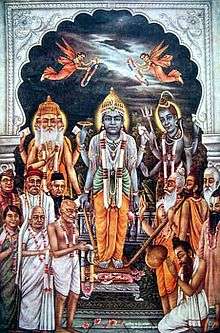
India will teach us the tolerance and gentleness of mature mind, understanding spirit and a unifying, pacifying love for all human beings. ~ Will Durant
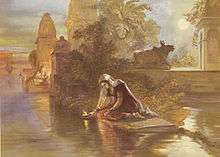
If I were asked under what sky the human mind has most fully developed some of its choicest gifts, has most deeply pondered over the greatest problems of life, and has found solutions of some of them which well deserve the attention even of those who have studied Plato and Kant, I should point to India. ~ Max Müller
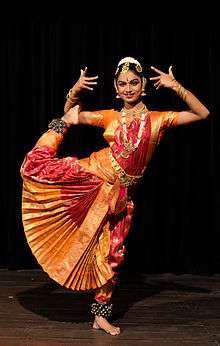
The inhabitants of this land are religious, affectionate, hospitable, genial and frank. They are fond of scientific pursuits, inclined to austerity of life, seekers after justice, contented, industrious, capable in affairs, loyal, truthful and constant… ~ Abul Fazl
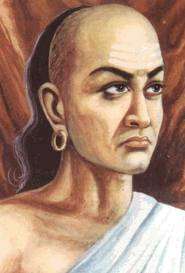
The area extending from the Himalayas in the north to the sea and a thousand yojanas wide from east to west is the area of operation of the King-Emperor. ~ Chanakya (Kautilya)
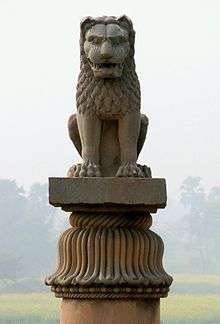
India was the motherland of our race, and Sanskrit the mother of Europe's languages: she was the mother of our philosophy; mother, through the Arabs, of much of our mathematics; mother, through the Buddha, of the ideals embodied in Christianity; mother, through the village community, of self-government and democracy. Mother India is in many ways the mother of us all. ~ Will Durant
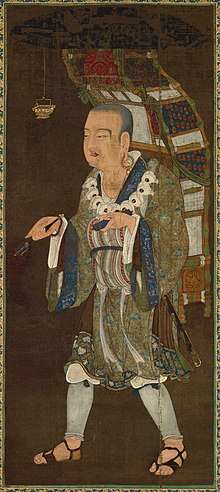
The ordinary people … are upright and honourable... They are faithful to their oaths and promises... In their behavior there is much gentleness and sweetness. ~ Xuanzang
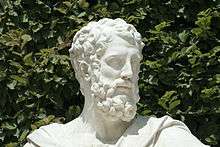
In India I found a race of mortals living upon the Earth, but not adhering to it. Inhabiting cities, but not being fixed to them, possessing everything but possessed by nothing. ~ Apollonius of Tyana

To Bankimchandra, She appeared as the triple manifestation of Saraswati, Lakshmi and Durga. Rabindranath Tagore visualised Her as Devi bhuvana-mana-mohini - the divine enchantress of the world. To Swami Vivekananda, She was the Mother of all the thirty-three crores of gods and goddesses - whose worship would gratify all those myriad deities. Guruji Golwalkar visualised Her as Trinity of Mata - the loving mother, Pita - the protecting father, and Guru - the elevating spiritual guide. ~ H. V. Sheshadri
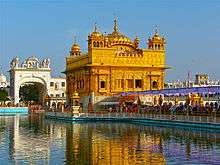
This is indeed India! the land of dreams and romance, of fabulous wealth and fabulous poverty, of splendor and rags, of palaces and hovels, of famine and pestilence, of genii and giants and Aladdin lamps, of tigers and elephants, the cobra and the jungle, the country of a hundred nations and a hundred tongues, of a thousand religions and two million gods, cradle of the human race, birthplace of human speech, mother of history, grandmother of legend, great-grandmother of tradition, whose yesterdays bear date with the mouldering antiquities of the rest of the nations — the one sole country under the sun that is endowed with an imperishable interest for alien prince and alien peasant, for lettered and ignorant, wise and fool, rich and poor, bond and free, the one land that all men desire to see, and having seen once, by even a glimpse, would not give that glimpse for the shows of all the rest of the globe combined. ~ Mark Twain
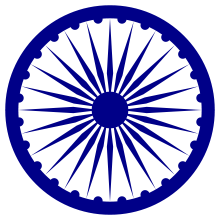
Swami Vivekananda often spoke of the future greatness of India as surpassing all her glories of the past. ~ Swami Nikhilananda
A
- In India I found a race of mortals living upon the Earth, but not adhering to it. Inhabiting cities, but not being fixed to them, possessing everything but possessed by nothing.
- Apollonius of Tyana, quoted in The Transition to a Global Society (1991) by Kishor Gandhi, p. 17, and in The Age of Elephants (2006) by Peter Moss, p. v
- This also is remarkable in India, that all Indians are free, and no Indian at all is a slave. In this the Indians agree with the Lacedaemonians. Yet the Lacedaemonians have Helots for slaves, who perform the duties of slaves; but the Indians have no slaves at all, much less is any Indian a slave.
- Arrian, Anabasis Alexandri, Book VII : Indica, as translated by Edgar Iliff Robson (1929), p. 335
- No Indian ever went outside his own country on a warlike expedition, so righteous were they.
- Arrian, Anabasis Alexandri, Book VII : Indica, as translated by Edgar Iliff Robson (1929), p. 18
- India of the ages is not dead nor has She spoken her last creative word; She lives and has still something to do for herself and the human peoples. And that which must seek now to awake is not an Anglicized oriental people, docile pupil of the West and doomed to repeat the cycle of the Occident's success and failure, but still the ancient immemorial Shakti recovering Her deepest self, lifting Her head higher toward the supreme source of light and strength and turning to discover the complete meaning and a vaster form of her Dharma.
- Sri Aurobindo, in the last issue of Arya: A Philosophical Review (January 1921), as quoted in The Modern Review, Vol. 29 (1921), p. 626.
- For what is a nation? What is our mother-country? It is not a piece of earth, nor a figure of speech, nor a fiction of the mind. It is a mighty Shakti, composed of the Shaktis of all the millions of units that make up the nation, just as Bhawani Mahisha Mardini sprang into being from the Shaktis of all the millions of gods assembled in one mass of force and welded into unity. The Shakti we call India, Bhawani Bharati, is the living unity of the Shaktis of three hundred million people …
- Sri Aurobindo (Bhawāni Mandir) quoted in Issues of Identity in Indian English Fiction: A Close Reading of Canonical Indian English Novels by H. S. Komalesha
- India is the guru of the nations, the physician of the human soul in its profounder maladies; she is destined once more to remould the life of the world and restore the peace of the human spirit. But Swaraj is the necessary condition of her work and before she can do the work , she must fulfil the condition.
- Sri Aurobindo, Sri Aurobindo Mandir Annual (1947), p. 196
- The 'nation idea' India never had. By that I mean the political idea of the nation. It is a modern growth. But we had in India the cultural and spiritual idea of the nation.
- Sri Aurobindo, Indias Rebirth, quoted from Elst, Koenraad (2001). Decolonizing the Hindu mind: Ideological development of Hindu revivalism. New Delhi: Rupa. p. 460
- India is the only country which has known God and if anyone wants to know God he must know India.
- Vecente Avelino, as quoted in A Tribute to Hinduism : Thoughts and Wisdom Spanning Continents and Time about India and Her Culture (2008), p. 196
B
- [Hindustan] is a wonderful country. Compared with our countries it is a different world ; its mountains, rivers, jungles and deserts, its towns, its cultivated lands, its animals and plants, its peoples and their tongues, its rains, and its winds, are all different. ...Once the water of Sind is crossed, everything is in the Hindustan way, land, water, tree, rock, people and horde, opinion and custom.
- Babur: Baburnama.
- The age in which true history appeared in India was one of great intellectual and spiritual ferment. Mystics and sophists of all kinds roamed through the Ganga Valley, all advocating some form of mental discipline and asceticism as a means to salvation; but the age of the Buddha, when many of the best minds were abandoning their homes and professions for a life of asceticism, was also a time of advance in commerce and politics. It produced not only philosophers and ascetics, but also merchant princes and men of action.
- A. L. Basham in The Wonder that was India (1954)
- The ancient civilisation of India differs from those of Egypt, Mesopotamia and Greece, in that its traditions have been preserved without a break down to the present day. Until the advent of the archaeologist, the peasant of Egypt or Iraq had no knowledge of the culture of his forefathers, and it is doubtful whether his Greek counterpart had any but the vaguest ideas about the glory of Periclean Athens. In each case there had been an almost complete break with the past. On the other hand…to this day legends known to the humblest Indian recall the names of shadowy chieftains who lived nearly a thousand years before Christ, and the orthodox Brahman in his daily worship repeats hymns composed even earlier. India and China have, in fact, the oldest continuous cultural traditions in the world.
- There are some parts of the world that, once visited, get into your heart and won’t go. For me, India is such a place. When I first visited, I was stunned by the richness of the land, by its lush beauty and exotic architecture, by its ability to overload the senses with the pure, concentrated intensity of its colors, smells, tastes, and sounds. It was as if all my life I had been seeing the world in black and white and, when brought face-to-face with India, experienced everything re-rendered in brilliant technicolor.
- Keith Bellows, Vice-President, National Geographic Society, as quoted in Think India: The Rise of the World's Next Superpower and What It Means for Every American (2007) by Vinay Rai and William L. Simon, p. 187
- Keith Bellows, as quoted in ''Study in India - A Guide by Knowledge Must
- India is the mother of religion. In her are combined science and religion in perfect harmony, and that is the Hindu religion, and it is India that shall be again the spiritual mother of the world.
- Annie Besant, ( Besant's lecture at the Grand Theatre, Calcutta on Jan 15th 1906).
- The Hindus believe that there is no country but theirs, no nation like theirs, no king like theirs, no religion like theirs, no science like theirs.
- Al-Biruni, Alberuni's India, quoted from K.S. Lal, Indian Muslims who are they, 1990
- The India I Love, does not make the headlines, but I find it wherever I go – in field or forest, town or village, mountain or desert – and in the hearts and minds of people who have given me love and affection for the better part of my lifetime.
- Ruskin Bond. Interview with Prajwala Hegde. "You cannot die of boredom in India." The New Indian Express., Bangalore. June 07, 2012.
.
- The land created by the gods and stretching from Himalayas to the Indu (i.e.Southern) ocean is called Hindusthan.
- Brihaspati Agama, Quoted in Golwalkar, M. Bunch of Thoughts.
C
- The area extending from the Himalayas in the north to the sea and a thousand yojanas wide from east to west is the area of operation of the King-Emperor.
- Chakravarti-kshetra as described by Chanakya (Kautilya): Arthashastra 9:1:17 (tr. L.N. Rangarajan), quoted from Elst, Koenraad (2001). Decolonizing the Hindu mind: Ideological development of Hindu revivalism. New Delhi: Rupa. p.457
- Indians would certainly try to understand the fact that for more than a hundred years in the late fourth, third and early second centuries BC, there was a state which controlled the entire natural geographical domain of south Asia. Not even the British controlled such a large area for such a long period. This fact should in any case be one of the answers to the notion that there have only been divisive tendencies in the political history of India.
- Chakrabarti, D. K., 1997. Colonial Indology: Sociopolitics of the Ancient Indian Past. New Delhi: Munshiram Manoharlal Publishers Pvt. Ltd.
- India is a geographical term. It is no more a united nation than the equator.
- Winston Churchill, speech at Royal Albert Hall, London (18 March 1931)
- I learned that Bharat is the most ancient source of living wisdom (spirituality) and that it has always generated its revelations world wide.
- Keith Critchlow, an architect known for his works on sacred geometry and also a former professor of Islamic Art at the Royal College of Art in London. As quoted in "Indian Ethos and Values in Management", McGraw Hill India, 2011.
- Powerful empires existed and flourished here (in India) while Englishmen were still wandering, painted, in the woods, and while the British Colonies were still a wilderness and a jungle. India has left a deeper mark upon the history, the philosophy, and the religion of mankind, than any other terrestrial unit in the universe.
- Lord Curzon, while Viceroy of India, in his address at the Great Delhi Durbar in 1901. Quoted from Avinash PAtra in "Curzon Exposed Through Avinash Patra"
D
- India has many strengths which make it one of the greatest countries in the world. I believe India's greatest strength is the Indian people, in particular their spiritual devotion and purity. Many Indians see beyond illusion and understand the deeper meaning is best displayed by the custom of bowing of life. Perhaps this to the God within when greeting another person. Many Western people visit India to find spiritual inspiration, clarity and renewal. This focus on the deeper reality of humanity's oneness with nature and each other is needed to address growing environmental and social problems around the world. The Indian people model the peace, wisdom, love and respect needed to achieve the beautiful, prosperous, sustainable world that all humanity seeks.
- Frank Dixon, Former Director – Research, Innovest Venture Partners. As quoted in "Environmental Management", Oxford University Press, 2015.
- India was the motherland of our race, and Sanskrit the mother of Europe's languages: she was the mother of our philosophy; mother, through the Arabs, of much of our mathematics; mother, through the Buddha, of the ideals embodied in Christianity; mother, through the village community, of self-government and democracy. Mother India is in many ways the mother of us all.
- Will Durant, The Case for India (1931)
- It is true that even across the Himalayan barrier India has sent to us such questionable gifts as grammar and logic, philosophy and fables, hypnotism and chess, and above all, our numerals and our decimal system. But these are not the essence of her spirit; they are trifles compared to what we may learn from her in the future. As invention, industry and trade bind the continents together, or as they fling us into conflict with Asia, we shall study its civilizations more closely, and shall absorb, even in enmity, some of its ways and thoughts. Perhaps, in return for conquest, arrogance and spoliation, India will teach us the tolerance and gentleness of the mature mind, the quiet content of the unacquisitive soul, the calm of the understanding spirit, and a unifying, pacifying love for all living things.
- Will Durant, Our Oriental Heritage. Quoted from Stephen Knapp, Mysteries of the Ancient Vedic Empire
E
- We owe a lot to the Indians, who taught us how to count, without which no worthwhile scientific discovery could have been made.
- Albert Einstein, Vedic Revelations - Page 8
- Scant justice is done to her position in the world by those histories which recount the exploits of her invaders and leave the impression that her own people were a feeble, dreamy folk, sundered from the rest of mankind by their sea and mountain frontiers. Such a picture takes no account of the intellectual conquests of the Hindus. Even their political conquests were not contemptible and were remarkable for the distance if not for the extent of the territory occupied. ... But such military or commercial invasions are insignificant compared with the spread of Indian thought.
- Long centuries before any foreigner had settled in India, the unity of the country was materialized in symbols. What more suggestive than that, for instance, of Sati, Siva's consort, whose body, divided after her death in fity-one pieces, is lying still in fifty-one different places, theorfore revered as 'tithasthans', throughout the Indian peninsula?... The final editing fo the Ramayana and the Mhahabharata is not dated later than the first encturies AD, and they are fully familiar with the concept and surface of India, as are Kalidasa's Raghuvamsha and the Puranas.
- Elst, Koenraad. The Saffron Swastika (2001)
F
- The inhabitants of this land are religious, affectionate, hospitable, genial and frank. They are fond of scientific pursuits, inclined to austerity of life, seekers after justice, contented, industrious, capable in affairs, loyal, truthful and constant… They one and all believe in the unity of God, and as to the reverence they pay to the images of stone and wood and the like, which simpletons regard as idolatry, it is not so.
- Ain-i-Akbari by Abul Fazl. Quoted from Lal, K. S. (1999). Theory and practice of Muslim state in India. New Delhi: Aditya Prakashan. Chapter 2
G
- The English have taught us that we were not one nation before and that it will require centuries before we become one nation. This is without foundation. We were one nation before they came to India. One thought inspired us. Our mode of life was the same. It was because we were one nation that they were able to establish one kingdom. Subsequently they divided us.
- Mahatma Gandhi: Hind Swaraj, Chapter ix
- You have engulfed Hindustan in dread... Oh Lord, these dogs have destroyed this diamond-like Hindustan, (so great is their terror that) no one asks after those who have been killed, and yet You do not pay heed.
- Guru Granth Sahib, [Mahla 1.360] quoted in Arun Shourie, "The Litmus Test of Whether Your History is Secular" and in Shourie, Arun (2014). Eminent historians: Their technology, their line, their fraud. Noida, Uttar Pradesh, India : HarperCollins Publishers.
- This vast land... had been a single indivisible whole since times immemorial. Bharatavarsha had been termed by the ancients as the cradle of varnãšrama-dharma, witness to the wheel of the caturyugas, and the kshetra for chakravãrtya, spiritual as well as political. This historical memory and cultural tradition was alive as late as the imperial Guptas. Kalidasa had clothed it in immortal poetry in his far-famed Raghuvamša.
- S.R. Goel, The Story of Islamic Imperialism in India (1994)
H
- India as a land of Desire iced an essential element in general history. From the most ancient times downwards, all nations have directed their wishes and longings to pining access to the treasures of this land of marvels, the most costly which the earth presents, treasures of nature ‑ pearls, diamonds, perfumes, rose essences, lions, elephants, etc. ‑ as also treasures of wisdom. The way by which these treasures have passed to the West has at all tins been a matter of world historical importance bound up with the fate of nations.
- Georg Wilhelm Friedrich Hegel, quoted in Panikkar, K. M. (1953). Asia and Western dominance, a survey of the Vasco da Gama epoch of Asian history, 1498-1945, by K.M. Panikkar. London: G. Allen and Unwin.
- India is not only a country and something geographical, but the home and the youth of the soul, the everywhere and nowhere, the oneness of all times.
- Hermann Hesse. source: Hermann Hesse: A Collection of Criticism, Fudith Sielemann . Quoted from Gewali, Salil (2013). Great Minds on India. New Delhi: Penguin Random House.
I
- Ancient civilizations of Greece, Egypt and Rome have all disappeared from this world, but the elements of our civilization still continue. Although world-events have been inimical to us for centuries, there is something in our civilization which has withstood these onslaughts.
- Muhammad Iqbal (1873-1938), Vedic Revelations
J
- Great and enduring civilizations like those of the Hindus and the Chinese were built upon this foundation and developed from it a discipline of self-knowledge which they brought to a high pitch of refinement both in philosophy and practice.
- Carl Jung. source: Hindu Culture, K. Guru Dutt. Quoted from Gewali, Salil (2013). Great Minds on India. New Delhi: Penguin Random House.
K
- Incredible India!
- Amitabh Kant, as quoted in Branding India : an incredible story (2009), by Amitabh Kant Sunil
- Happy Hindustan, the splendour of Religion. where the Law finds perfect honour and security... The whole country, by means of the sword of our holy warriors, has become like a forest denuded of its thorns by fire. The land has been saturated with the water of the sword, and the vapours of infidelity have been dispersed. The strong men of Hind have been trodden under foot, and all are ready to pay tribute. ... Had not the law [of Imam Hanifa] granted exemption from death by the payment of poll-tax, the very name of hind, root and branch, would have been extinguished.
- Ashiqa of Amir Khusru, translated in Elliot and Dowson, History of India as told by its own Historians, Volume III, pp. 545-46.
L
- You'd have to be brain dead to live in India and not be affected by Hinduism. It's not like Christianity in America, where you feel it only on Sunday mornings … if you go to church at all. Hinduism is an on-going daily procedure. You live it, you breathe it. … Hinduism has a playful aspect which I've not experienced in any other religion. Its not so righteous or sober as is Christianity, nor is it puritanical. That's one of the reasons I enjoy India. I wake up in the morning, and I'm very content.
- Marcus Leatherdale, Canadian photographer, quoted in "Banaras: Eclipsed by a camera : The timeless portraits of Marcus Leatherdale" in Hinduism Today (March 1997)
M
- That land where the black antelope naturally roams, one must know to be fit for the performance of sacrifices; (the tract) different from that (is) the country of the Mlekkhas.
- Manu Smriti 2.23, as quoted in Decolonizing the Hindu Mind (2001), by Koenraad Elst
- India is the great democratic miracle of the world.
- If I were asked under what sky the human mind has most fully developed some of its choicest gifts, has most deeply pondered over the greatest problems of life, and has found solutions of some of them which well deserve the attention even of those who have studied Plato and Kant, I should point to India. And if I were to ask myself from what literature we who have been nurtured almost exclusively on the thoughts of Greeks and Romans, and of the Semitic race, the Jewish, may draw the corrective which is most wanted in order to make our inner life more perfect, more comprehensive, more universal, in fact more truly human a life... again I should point to India.
- Max Müller, India, What Can It Teach Us (1882) Lecture IV
N
- Bharat has been an inspiration to me through her great gift to the modern world, Mahatma Gandhi, and the incredible tradition of spirituality from which he came. India doubtless needs some things today from the West -- not the ones she has chosen to adopt, namely the materialism and superficiality, rather the West’s efficiency and organization. But the West needs even more badly India’s humanity and spirituality, which is unrivalled by any culture I know of, past or present.
- Michael Nagler, Professor Emeritus - Languages, University of California, Berkeley. As quoted in "Indian Ethos and Values in Management", McGraw Hill India, 2011.
- It was narrated that Thawban, the freed slave of the Messenger of Allah, said: "The Messenger of Allah said: 'There are two groups of my Ummah whom Allah will free from the Fire: The group that invades India (taghzoo al-hind), and the group that will be with 'Isa bin Maryam, peace be upon him.'"
- Ghazwa-e-hind. Al-Nasa'i, Al-Sunan al-Sughra (one of the six major hadiths). Sunan an-Nasa'i 1:25:3177 (hasan) from The Book of Jihad, chapter "Invading India"
- Long years ago we made a tryst with destiny, and now the time comes when we shall redeem our pledge, not wholly or in full measure, but very substantially. At the stroke of the midnight hour, when the world sleeps, India will awake to life and freedom. A moment comes, which comes but rarely in history, when we step out from the old to the new, when an age ends, and when the soul of a nation, long suppressed, finds utterance. It is fitting that at this solemn moment, we take the pledge of dedication to the service of India and her people and to the still larger cause of humanity.
- Jawaharlal Nehru, in: Quicktime excerpt and in: Rediscovery of India, The: A New Subcontinent, Orient Blackswan, 1 January 1999, p. 191
- Excerpts from his speech delivered on the eve of declaration of Independence, on 14 August 1947, at the midnight hour declaring Independence of India on 15 August 1947.
O
- My confidence in our shared future is grounded in my respect for India’s treasured past—a civilization that has been shaping the world for thousands of years. Indians unlocked the intricacies of the human body and the vastness of our universe. And it is no exaggeration to say that our information age is rooted in Indian innovations—including the number zero.... Instead of succumbing to division, you have shown that the strength of India—the very idea of India—is its embrace of all colours, castes and creeds … It’s the richness of faiths celebrated by a visitor to my hometown of Chicago more than a century ago—the renowned Swami Vivekananda...India not only opened our minds, she expanded our moral imaginations. With religious texts that still summon the faithful to lives of dignity and discipline. With a poet who imagined a future ’Where the mind is without fear and the head is held high’—and with a man whose message of love and justice endures—the father of your nation, Mahatma Gandhi.
- Barack Obama. Quoted from Gewali, Salil (2013). Great Minds on India. New Delhi: Penguin Random House.
P
- Over the years of sovereign development your country has achieved impressive results in social-economic, industrial and scientific spheres. Today India as an authoritative member of world community plays an important role in UN, SCO, BRICS, other global and regional structures.
- Vladimir Putin (Russian President) on India's 66th Independence Day
- India represents the new world in a unique sense. Traditionally democracies were trying to bring equality to all walks of life, today there is a change. Democracy wants to enable every country to have the equal right to be different; it's a collection of differences, not an attempt to force or impose equality on every country. I think India is the greatest show of how so many differences in language, in sects can coexist facing great suffering and keeping full freedom... Many of the countries in the Middle East should learn from you how to escape poverty. You didn't escape poverty by getting American dollars or Russian Roubles but by introducing your own internal reforms and by understanding that the new call of modernity is science. In between the spiritual wealth of Gandhi and the earthly wisdom of Nehru, you combined a great performance of spirit and practice to escape poverty...I know you still have a long way to go but you do it without compromising freedom. The temptation when you're such a large country to introduce discipline and imposition is great but you tried to do it, to make progress not with force and discipline but in an open way. Many of us were educated on the literature of India when we fell in love we read Rabindranath Tagore and when we matured we tried to understand Gandhi.
- Shimon Peres (Israeli President), on India. Israeli President Shimon Peres praises India as greatest 'show of co-existence' (4 December 2012)
- To the north of the oceans and the south of the Himalayas lies the land of Bharata, inhabited by Bharatis.
- Visnu Purana, quoted in The Aryan Invasion Theory and Indian Nationalism (1993) by S. Talageri
R
- Like every old civilisation still represented on this globe, India has been, and is, increasingly, in spite of appearances, returning to its original sources... It is from the depths of that old civilisation that India is most likely to draw the strength needed to adapt itself to the modern world.
- Amaury de Riencourt, The Soul of India. Quoted in K.R. Malkani: Indian Express New Delhi, 27 July 1995 ‘One country, one people’ [Section V, 13. Secret of BJP’s success] and quoted from Time for stock taking, whither Sangh Parivar? Edited by Goel, S. R. (1997)
S
- The Indian way of life provides the vision of the natural, real way of life. We [Westerners] veil ourselves with unnatural masks. On the face of India are the tender expressions which carry the mark of the Creator’s hand.
- George Bernard Shaw, Quoted from Gewali, Salil (2013). Great Minds on India. New Delhi: Penguin Random House.
- Indeed how many were the seers and sages, poets and prophets - right from the Vedic age upto the modern times - who had fostered in the nation's breast the integrated and whole picture of Bharat as the Divine Mother. Bharat, in their eyes, was not a mere clod of clay. It was verily the Matrubhoomi, the Punyabhoomi, the Dharmabhoomi, the Devabhoomi, the Karmabhoomi - all sublimated into one single majestic figure of Bharat Mata. To Bankimchandra, She appeared as the triple manifestation of Saraswati, Lakshmi and Durga. Rabindranath Tagore visualised Her as Devi bhuvana-mana-mohini - the divine enchantress of the world. To Swami Vivekananda, She was the Mother of all the thirty-three crores of gods and goddesses - whose worship would gratify all those myriad deities. Guruji Golwalkar visualised Her as Trinity of Mata - the loving mother, Pita - the protecting father, and Guru - the elevating spiritual guide. The unity of Bharat is so basic to its nature, so sublime in its depths - in fact, an inseparable aspect of its national soul.
- H. V. Sheshadri: The Tragic Story of Partition, Bangalore Jagarana Prakashana 1982, p.9.
- India conquered and dominated China culturally for 20 centuries without ever having to send a single soldier across her border.
- Hu Shih, quoted in Consolation of Mind (2004). by H. K. Suhas, p. 111.
- We find among the Indians the vestiges of the most remote antiquity... We know that all peoples came there to draw the elements of their knowledge... India, in her splendour, gave religions and laws to all the other peoples; Egypt and Greece owed to her both their fables and their wisdom.
- The Indian way of life provides the vision of the natural, real way of life. We veil ourselves with unnatural masks. On the face of India are the tender expressions which carry the mark of the Creator's hand.
- George Bernard Shaw, as quoted in Science & Technology in India Through the Ages, p. 213
- They have made present-day India, and Hinduism even more so, out to be a zoo – an agglomeration of assorted, disparate specimens. No such thing as ‘India’, just a geographical expression, just a construct of the British... – that has been their stance.... Caste is real. The working class is real. Being a Naga is real. But ‘India is just a geographical expression!’... And anyone who maintains anything to the contrary is a fascist out to insinuate a unity, indeed to impose a uniformity, where there has been none. That is what our progressive ideologues declaim, as we have seen. In a word, the parts alone are real. The whole is just a construct. India has never been one, these ideologues insist – disparate peoples and regions were knocked together by the Aryans, by the Mughals, by the British for purposes of empire. Anyone who wants to use that construct – India – as the benchmark for determining the sort of structure under which we should live has a secret agenda – of enforcing Hindu hegemony. This is the continuance of, in a sense the culmination of, the Macaulay-Missionary technique. The British calculated that to subjugate India and hold it, they must undermine the essence of the people: this was Hinduism, and everything which flowed from it... India turns out to be a recent construct. It turns out to be neither a country nor a nation...
- Arun Shourie (2014). Eminent historians: Their technology, their line, their fraud. Noida, Uttar Pradesh, India : HarperCollins Publishers.
T
- What India has been, the whole world is now. The whole world is becoming one country through scientific facility. And the moment is arriving when you also must find a basis of unity which is not political. If India can offer to the world her solution, it will be a contribution to humanity. There is only one history — the history of Man. All national histories are merely chapters in the larger one.
- Rabindranath Tagore, "Nationalism in the West", 1917. Reprinted in Rabindranath Tagore and Mohit K. Ray, Essays (2007, p. 492).
- I cannot but bring to your mind those days when the whole of Eastern Asia, from Burma to Japan was united with India in the closest ties of friendship...
- Rabindranath Tagore, Essays, Nationalism in Japan, Atlantic Publishers & Dist, 2007 p.471, and quoted in A Look at India From the Views of Other Scholars, by Stephen Knapp
- At this supremely dangerous moment in human history, the only way of salvation is the ancient Hindu way. Here we have the attitude and spirit that can make it possible for the human race to grow together into a single family.
- Arnold Joseph Toynbee. Quoted from Gewali, Salil (2013). Great Minds on India. New Delhi: Penguin Random House.
- India has a true friend in the White House.
- This is indeed India! the land of dreams and romance, of fabulous wealth and fabulous poverty, of splendor and rags, of palaces and hovels, of famine and pestilence, of genii and giants and Aladdin lamps, of tigers and elephants, the cobra and the jungle, the country of a hundred nations and a hundred tongues, of a thousand religions and two million gods, cradle of the human race, birthplace of human speech, mother of history, grandmother of legend, great-grandmother of tradition, whose yesterdays bear date with the mouldering antiquities of the rest of the nations — the one sole country under the sun that is endowed with an imperishable interest for alien prince and alien peasant, for lettered and ignorant, wise and fool, rich and poor, bond and free, the one land that all men desire to see, and having seen once, by even a glimpse, would not give that glimpse for the shows of all the rest of the globe combined. Even now, after the lapse of a year, the delirium of those days in Bombay has not left me, and I hope never will.
- Mark Twain, Following the Equator (1897), Ch. XXXVIII
- Famine is India's specialty. Elsewhere famines are inconsequential incidents — in India they are devastating cataclysms; in one case they annihilate hundreds; in the other, millions.
India has 2,000,000 gods, and worships them all. In religion all other countries are paupers; India is the only millionaire.
With her everything is on a giant scale — even her poverty; no other country can show anything to compare with it. And she has been used to wealth on so vast a scale that she has to shorten to single words the expressions describing great sums.- Mark Twain, Following the Equator (1897), Ch. XLIII
- India had the start of the whole world in the beginning of things. She had the first civilization; she had the first accumulation of material wealth; she was populous with deep thinkers and subtle intellects; she had mines, and woods, and a fruitful soil. It would seem as if she should have kept the lead, and should be to-day not the meek dependent of an alien master, but mistress of the world, and delivering law and command to every tribe and nation in it. But, in truth, there was never any possibility of such supremacy for her.
- Mark Twain, Following the Equator (1897), Ch. XLIII
- So far as I am able to judge, nothing has been left undone, either by man or Nature, to make India the most extraordinary country that the sun visits on his round. Nothing seems to have been forgotten, nothing overlooked. Always, when you think you have come to the end of her tremendous specialties and have finished hanging tags upon her as the Land of the Thug, the Land of the Plague, the Land of Famine, the Land of Giant Illusions, the Land of Stupendous Mountains, and so forth, another specialty crops up and another tag is required. I have been overlooking the fact that India is by an unapproachable supremacy — the Land of Murderous Wild Creatures. Perhaps it will be simplest to throw away the tags and generalize her with one all-comprehensive name, as the Land of Wonders.
- Mark Twain, Following the Equator (1897), Ch. LVII
U
- With the support of Universal knowledge and our heritage, we shall create a Bharat which will excel all its past glories, and will enable every citizen in its fold to steadily progress in the development of his manifold latent possibilities and to achieve through a sense of unity with the entire creation, a state even higher than that of a complete human being; to become Narayan from nar (man). This is the external divine form of our culture. This is our message to humanity at a cross roads. May God give us strength to succeed in this mission.
- Deendayal Upadhyaya , Integral Humanism, quoted in L.K. Advani, My Country My Life (2008)
V
- Swami Vivekananda often spoke of the future greatness of India as surpassing all her glories of the past.
- Swami Nikhilananda, Swami Vivekânanda : A Biography (1975); the "vaisya" represent those primarily living at the mercantile levels of human motivation, and the sudra represent the working class, or laborers.
W
- India is truly a mystery containing all that is the worthiest, most spiritual, and intellectual in humankind and the worst aspects of humankind one could ever hope to find including total lack of concern for others, extreme material poverty, and spiritual bankruptcy and fraud. India is the world in other words with everything in the world revealed both of the highest form and lowest denominator. I love India. I hate India. I cannot ever go to India without returned with strong feelings about it. My later writings would not be the same without my frequent stays in India and the influences that this country has had on my thoughts and feelings. If India did not exist, we would create it just as it is perfect in its imperfection.
- Dr Fred Alan Wolf (Author of Taking the Quantum Leap: The New Physics for Nonscientists). As quoted in "Indian Ethos and Values in Management", McGraw Hill India, 2011.
- The history of India for many centuries had been happier, less fierce, and more dreamlike than any other history. In these favorable conditions, they built a character meditative and peaceful and a nation of philosophers such as could have existed except nowhere in India.
- H.G. Wells. source: The Outline of History, H.G. Wells. Quoted from Gewali, Salil (2013). Great Minds on India. New Delhi: Penguin Random House.
X
- The ordinary people … are upright and honourable... They are faithful to their oaths and promises... In their behavior there is much gentleness and sweetness.
- Chinese pilgrim Xuanzang/Yuan Chwang in the 7th century commenting on the people of India. Quoted from Lal, K. S. (1999). Theory and practice of Muslim state in India. New Delhi: Aditya Prakashan. Chapter 2
Y
- India is a nation of unfulfilled greatness. Its potential has lain fallow, under used.
- Lee Kuan Yew in the second volume of his memoirs, published in 2000, quoted at
- India is an intrinsic part of this unfolding new world order. India can no longer be dismissed as a “wounded civilisation”, in the hurtful phrase of a westernised non resident Indian author (V.S. Naipaul).
- Lee Kuan Yew - At the 37th Jawaharlal Nehru Memorial Lecture on 21st Nov 2005 in New Delhi, quoted at
See also
External links

Wikibooks
Wikibooks has a book on the topic of
This article is issued from
Wikiquote.
The text is licensed under Creative
Commons - Attribution - Sharealike.
Additional terms may apply for the media files.